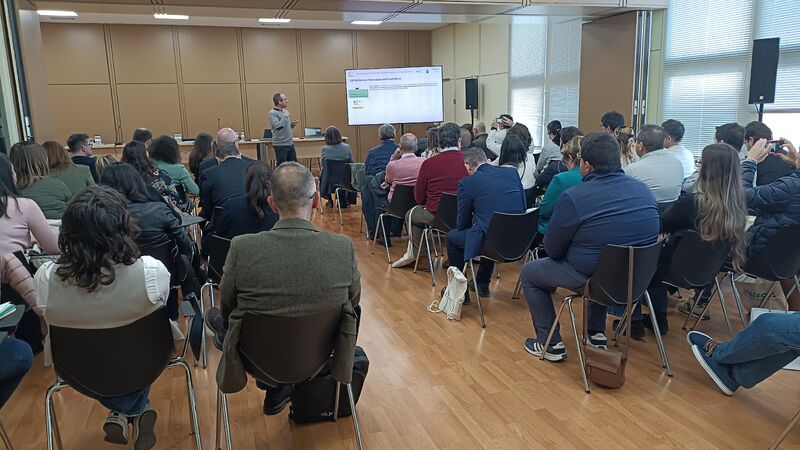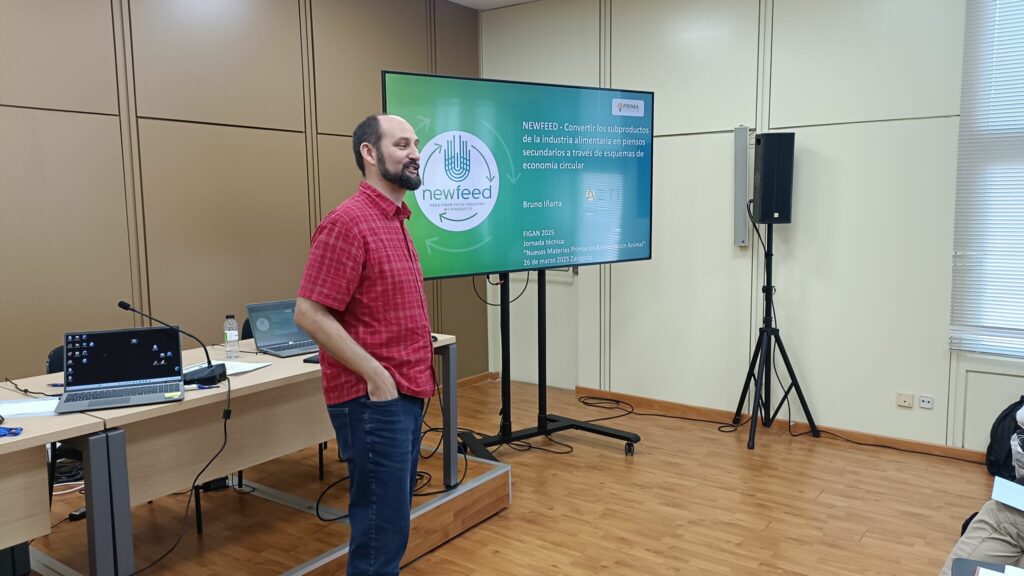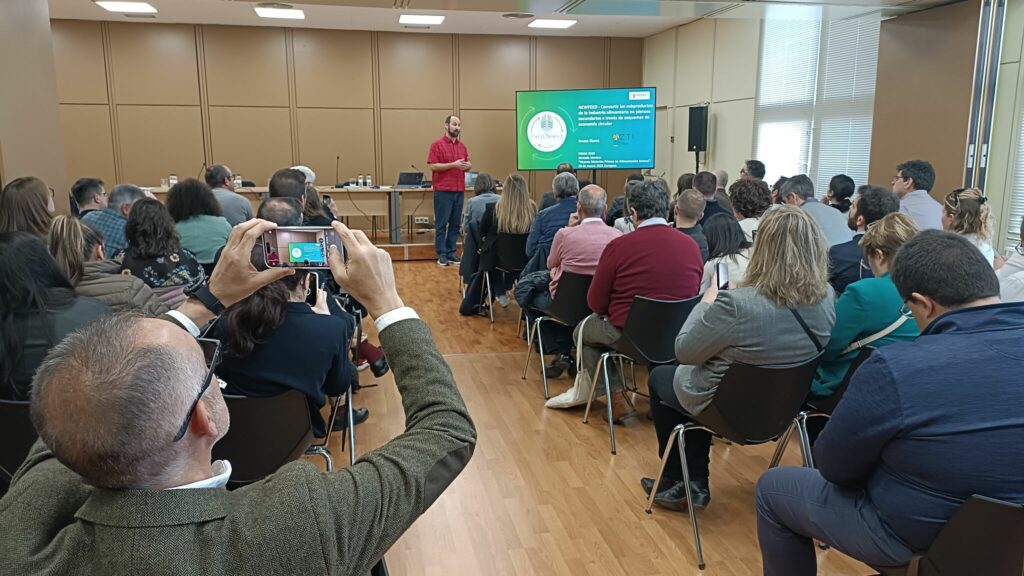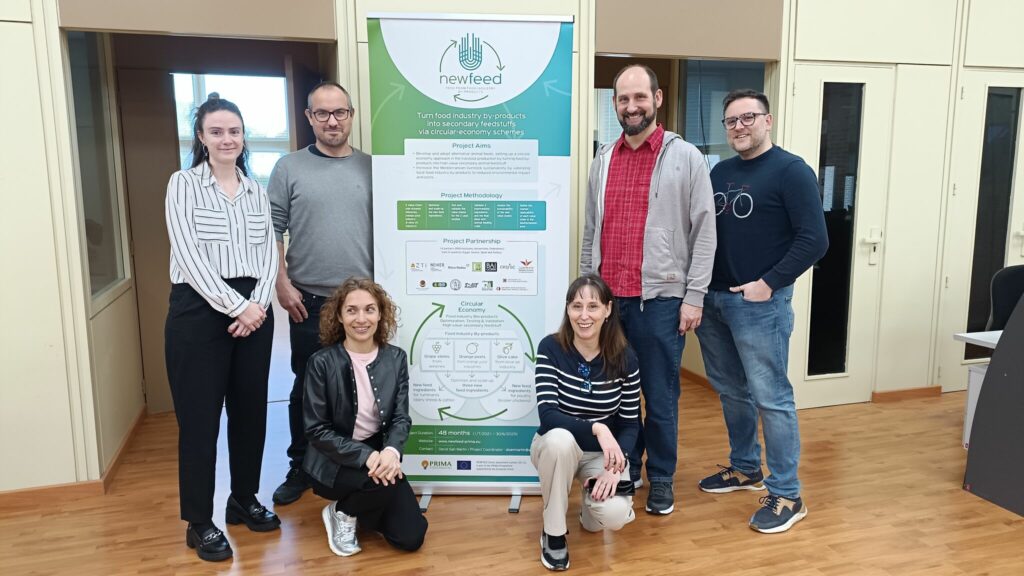
Highlights from the Spanish Demonstration Workshop: Advancing Sustainable Feed Practices in the Livestock Sector
On March 26th, 2025, the Spanish Demonstration Workshop for the NEWFEED Project was held in Zaragoza as part of the 17th International Animal Production Show (FIGAN 2025). This renowned event is a cornerstone for innovation in livestock production, attracting professionals from across the sector. The workshop, jointly organized by AZTI and UAGA, brought together around 75 stakeholders from the regional feed and livestock industries to explore sustainable, cost-effective alternatives in animal nutrition.
The focus of the workshop was the replication and scaling of NEWFEED project results within Spain, highlighting the transformation of agri-food by-products into viable feed ingredients. Participants included representatives from feed companies, researchers, industry leaders, and technology providers, all invested in addressing shared challenges such as rising feed costs, supply sustainability, and environmental impact.
Workshop Highlights
Exploring the Potential of Food Industry By-products
The session began with a presentation by David San Martín (AZTI), who outlined the potential of agri-food by-products in animal nutrition. His talk emphasized valorization strategies including fermentation, hydrolysis, and drying—methods that enhance nutritional quality, digestibility, and shelf life of by-products like grape stems, citrus pulp, and olive cake.
Introducing the NEWFEED Solutions
Bruno Iñarra (AZTI) followed with an in-depth overview of the NEWFEED project, its objectives, and the progress achieved across the three case studies. Special attention was given to the Spanish context and technical advances in processing organic residues into feed components. Results from feeding trials with dairy cows, sheep, and poultry were presented, demonstrating improvements in sustainability, animal performance, and overall feed efficiency.
Industry Innovations: Insect-Based Feed
The workshop also featured notable contributions from the insect protein sector. CEOs from Insectius, Insect Biotech, and Tebrio presented their work on integrating insect meal into livestock diets, showcasing how this emerging field can complement circular bioeconomy strategies and diversify protein sources in animal feed.
Roundtable Discussion: Industry Perspectives and Priorities
The event concluded with a dynamic roundtable where stakeholders addressed key concerns and aspirations regarding alternative feed ingredients. Several key themes emerged:
- Barriers to Adoption: High upfront costs, uncertainty around nutritional value, and concerns about regulatory compliance were noted as major obstacles.
- Drivers of Innovation: Companies expressed strong interest in feed solutions that reduce production costs, enhance sustainability, and maintain product consistency.
- Future Outlook: Many participants indicated openness to adopting new protein sources, provided there is sufficient technical support, supply reliability, and demonstrated results.
Final Reflections
The Spanish Demonstration Workshop served as a powerful platform to exchange knowledge, share practical results, and build momentum for the adoption of alternative feed ingredients. Stakeholders acknowledged the significant potential of agri-food by-products, not just for reducing dependency on conventional raw materials, but also for driving innovation and sustainability in animal nutrition.
This workshop reaffirmed NEWFEED’s mission to support circular agricultural practices through collaborative, evidence-based solutions. As the project progresses, the insights and feedback gathered in Spain will guide further developments and replication efforts across the Mediterranean region.
.






